We are delighted to offer the following studentships for UK schoolteachers to study with us:
- Leventis MA Studentships
- EDI Studentships (for undergraduate modules)
Please see below for details and get in touch with us if you have any questions!
Leventis MA Studentships for Teachers:
We are delighted to be able to offer three fully-funded scholarships for teachers in state schools wishing to study our MA in Classical Studies.* These scholarships, generously funded by the A.G. Leventis Foundation, will be awarded to UK schoolteachers who intend to introduce or develop the provision of Classical Civilisation (or closely related subjects) in the curriculum of the school where they work.
The Open University’s MA in Classical Studies:
The MA in Classical Studies at the Open University focuses on the question ‘How do we know what we know about the ancient world?’ It is designed both to introduce you to key concepts and themes in Classical Studies and to allow you to explore some of these in more depth. Over the course of the two modules that make up the qualification, it gradually builds up your knowledge and the skills you need to explore ancient visual and written material, while also training you to become an independent researcher. This is the ideal qualification for anyone who wants to know more about the ancient world and the ways in which we can approach it as researchers. It also offers an excellent starting-point for those wishing to teach classical subjects in secondary school. It is a two-year qualification requiring approximately 16 hours of study time a week, which means that it can be completed alongside employment, and it is taught entirely online. No specific prior knowledge is assumed, and there is no requirement to have studied Latin or Ancient Greek, but an undergraduate degree in a cognate discipline is recommended as a basis. By consultation other arrangements can sometimes be made if you do not hold a degree in such a discipline. This usually involves preparatory reading. Further information about the MA is available on the OU website, and on our departmental website.
The Leventis scholarships consist of a grant of £8000 to cover the full cost of the tuition fees for the MA with the balance available to assist with the cost of book purchases related to the study of the MA modules and the acquisition and development of resources for teaching Classical Studies, or related subjects, in the scholarship holder’s school.
Developing Classical Studies in Schools:
Applicants may be interested in the panel discussion at the Open University’s Advocating Classics Education event in 2019, in which representatives of the ACE project, Classics for All, and a teacher with recent experience of developing Classical Studies provision in a state secondary school shared their experiences and offered guidance and advice. The full discussion is available online here.
Note that your plans to introduce or develop classical subjects in your school need not necessarily mean offering a formally examined course (such as a GCSE or National 4/5 in Scotland). Your plans might instead involve introducing classical content into other subject areas, teaching classics-related classes or clubs off-timetable or offering Latin as a foreign language at KS2, for example. Please outline your plans and their expected impact (e.g. in terms of student numbers) in your application.
How to apply:
To apply for the scholarship, please complete the MA-scholarship-application-form-2022 and send it to FASS-ClassicalStudies-Enquiries@open.ac.uk. With the form you should also send:
- a separate curriculum vitae (CV) of no more than two pages;
- a copy of your latest degree certificate and/or transcript;
- a statement from your headteacher indicating that they are willing to support your plans to develop Classical Civilisation (Classics, Latin and/or Greek, ancient history)
The application form includes a section for a personal statement. You should use this section to outline your teaching experience to date and to provide a clear indication of the way in which you propose to develop the provision of Classical Civilisation (Classics, Latin and/or Greek, ancient history) in your school. The successful applicants will be selected on the basis of this statement, and on the level of support from their school for their development of the curriculum.
The scholarships will not be awarded to students receiving full funding from other funding bodies. It is not necessary to register for the MA degree before making this application.
The Open University promotes diversity in education and we welcome applications from all sections of the community. If it would help to have the application in an alternative format please contact FASS-ClassicalStudies-Enquiries@open.ac.uk.
The deadline for applications is 4pm on Monday June 6, 2022 and we intend to inform all applicants by late June.
Informal enquiries can be made to Trevor Fear (trevor.fear@open.ac.uk).
*In line with the Open University’s commitment to EDI (equality, diversity and inclusion), we anticipate awarding these studentships to teachers in state/state-funded schools. We do not rule out applications from private or selective schools, but it will be particularly important in these cases to demonstrate how expansion of the curriculum in the school environment will lead to dissemination of opportunity for the wider community.
EDI Scholarships in Classical Studies for UK Schoolteachers:
We are delighted to be able to offer three fully-funded EDI scholarships for teachers in UK state schools wishing to study either of the following Open University modules:
- A229 Exploring the Classical World
- A276 Classical Latin: The Language of Ancient Rome
These scholarships, funded by the OU’s Faculty of Arts & Social Sciences, will be awarded to UK schoolteachers who intend to introduce or develop the provision of Classical Civilisation or Latin in the curriculum of the non-fee-paying school or college where they work. They are open to teachers of any discipline looking to develop their knowledge of the ancient worlds of Greece and Rome and/or Latin language and Roman culture with this aim in mind.
In the award of these scholarships, preference will be given to:
- teachers working in schools with a high proportion of students from backgrounds which are traditionally under-represented in the teaching of classical subjects, e.g. those from a Black, Asian or Minority Ethnic background and/or where a high percentage of pupils are eligible for Free School Meals;
- teachers from backgrounds which are traditionally under-represented in the teaching of classical subjects, e.g. those from a Black, Asian or Minority Ethnic background (including people with a mixed ethnic background) or from a working class background
These scholarships are open to those teaching in non-fee-paying primary and secondary schools as well as sixth form colleges. Please note that applicants will normally be expected to have worked for at least two years as a teacher.
Studying with the Open University
A229 Exploring the Classical World and A276 Classical Latin: The Language of Ancient Rome are 60-credit modules, requiring up to 16-18 hours of study each week. Students are supported by a dedicated tutor, enjoy access to regular tutorials, and study using a combination of printed and online materials. The Open University’s distance learning model gives students the flexibility to study where and when they want. Modules run from October to May and are assessed via a series of assignments submitted throughout the year.
A229 Exploring the Classical World
This module provides an introduction to the worlds of ancient Greece and Rome. It covers a range of topics such as Homer’s poetry and the society where it was created; Athens in the fifth century BCE; republican Rome; and Roman social history. This module explores ancient poetry, prose, drama and historical texts in English translation along with art, architecture and archaeological evidence to help you build up a solid understanding of key periods of classical history and culture. The material covered provides a strong foundation for the teaching of Classical Civilisation up to GCSE level (or National 4/5 Classical Studies in Scotland).
Further information about Exploring the Classical World is available on the OU website , and on our departmental website.
A276 Classical Latin: The Language of Ancient Rome
This module combines a beginners’ course in Latin with the study of Roman culture and literature in translation. You’ll learn the core principles of the language, while also exploring a range of Latin texts in translation (including Livy, Virgil, Ovid, and Horace) from literary, cultural, and historical angles. The module focuses on the themes of Roman identity, Rome’s origins, and the use of stories from the past in Augustan Rome. The material covered provides a strong foundation for the teaching of Latin up to GCSE level (or National 4/5 in Scotland).
Further information about Classical Latin: The Language of Ancient Rome is available on the OU website, and on our departmental website.
What’s included in the scholarship
The Open University EDI scholarships consist of a grant of £3,228 to cover the full cost of the tuition fees for the module.
Successful candidates will be provided with support and advice on developing or introducing classical subjects in their school and are asked to provide a report on their progress following their completion of the module.
Developing the teaching of classical subjects in schools
Applicants may be interested in the panel discussion at the Open University’s Advocating Classics Education event in 2019, in which representatives of the ACE project, Classics for All and a schoolteacher with recent experience of developing Classical Studies provision in a state secondary school shared their experiences and offered guidance and advice. The full discussion is available online here.
There is good support available for teachers looking to introduce classical subjects into state schools provided by the charity Classics for All. For more details, go to the Classics for All website and click on ‘My school wants classics’. The ACE project website (Advocating Classics Education) also provides useful advice for those wishing to develop Classical Civilisation (and Ancient History) in their schools. Charities such as the Roman Society and Hellenic Society can provide grants of up to £500 for classroom resources and books.
Note that your plans to introduce or develop classical subjects in your school need not necessarily mean offering a formally examined course (such as a GCSE). Your plans might instead involve introducing classical content into other subject areas, teaching classics-related classes or clubs off-timetable or offering Latin as a foreign language at KS2, for example. Please outline your plans and their expected impact (e.g. in terms of student numbers) in your application.
How to apply
To apply for the scholarship, please complete the EDI-scholarship-application-form-2022 and send it to FASS-ClassicalStudies-Enquiries@open.ac.uk. With the form you should also send:
- a separate curriculum vitae (CV) of no more than two pages;
- a copy of your degree certificate (or a transcript of your degree that makes clear the level of your academic achievement);
- a statement from your headteacher indicating that they are willing to support your plans to introduce or develop Classical Civilisation or Latin in your school or college.
The application form includes a section for a personal statement. You should use this section to outline:
- the ways in which the scholarship will facilitate greater access to classical subjects for those from backgrounds which are traditionally under-represented in the field (this may apply either to you as the candidate and/or to your students);
- the nature of the school you work in and its student body (where possible, please provide information on the percentage of pupils with English as an Additional Language, Special Educational Needs and Free School Meals, plus a link to the latest Ofsted report);
- your teaching experience to date;
- your need for the qualification;
- the precise ways in which you propose to develop the provision of Classical Civilisation or Latin in your school.
The successful applicants will be selected on the basis of this statement, their eligibility, and their academic and professional achievements to date, also taking into account the level of support from the school or college.
The scholarships will not be awarded to students receiving full funding from other funding bodies. It is not necessary to register for the OU study before making this application.
The Open University is proud to promote diversity in education and we welcome applications from all sections of the community. If it would help to have the application in an alternative format, please contact FASS-ClassicalStudies-Enquiries@open.ac.uk.
The deadline for applications is 4pm on Monday June 6, 2022 and we intend to inform all applicants by late June.
Informal enquiries about these scholarships can be made to: Prof James Robson (james.robson@open.ac.uk).
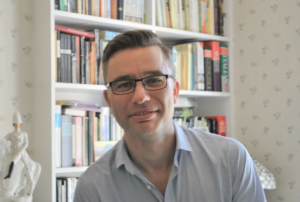 My first encounter with Aristophanes’ Lysistrata was as a first-year undergraduate as part of a Greek and Roman Drama module, and I can safely say it was love at first sight. We studied tragedy for the first semester, and as exciting and profound as Aeschylus, Sophocles and Euripides’ plays were for me at the time, I found myself impatiently waiting for Christmas to be over when all the secrets of Greek comedy would finally be revealed to me. The twinkle in my lecturer’s eye whenever he said the name ‘Aristophanes’ was intriguing enough, but it was the rumours I heard from fellow students about Aristophanes’ anarchic, sassy, quick-fire plays with their countless willy, bum and fart jokes that threatened to send me over the edge. Greek Comedy sounded mind-blowing and my mind could hardly wait to be blown.
My first encounter with Aristophanes’ Lysistrata was as a first-year undergraduate as part of a Greek and Roman Drama module, and I can safely say it was love at first sight. We studied tragedy for the first semester, and as exciting and profound as Aeschylus, Sophocles and Euripides’ plays were for me at the time, I found myself impatiently waiting for Christmas to be over when all the secrets of Greek comedy would finally be revealed to me. The twinkle in my lecturer’s eye whenever he said the name ‘Aristophanes’ was intriguing enough, but it was the rumours I heard from fellow students about Aristophanes’ anarchic, sassy, quick-fire plays with their countless willy, bum and fart jokes that threatened to send me over the edge. Greek Comedy sounded mind-blowing and my mind could hardly wait to be blown.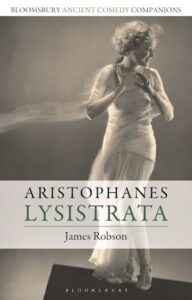 Reality hit hard, however, when we finally got to the plays themselves. Greek comedies were like nothing I had ever encountered before, it’s true, but that actually made them tough to read. Plots didn’t always progress logically, and Aristophanes’ stylistic switches and linguistic exuberance could often be difficult to make sense of. Most disappointingly of all – the fantastic willy gags aside – the jokes were often challenging to appreciate, designed as they were for a particular audience, in a particular time and place, and therefore referencing people, events, conventions and objects that were often unfamiliar to me. I desperately wanted to ‘get’ Greek Comedy, but was struggling to find an Aristophanic play to fall in love with. That is, until I found Lysistrata.
Reality hit hard, however, when we finally got to the plays themselves. Greek comedies were like nothing I had ever encountered before, it’s true, but that actually made them tough to read. Plots didn’t always progress logically, and Aristophanes’ stylistic switches and linguistic exuberance could often be difficult to make sense of. Most disappointingly of all – the fantastic willy gags aside – the jokes were often challenging to appreciate, designed as they were for a particular audience, in a particular time and place, and therefore referencing people, events, conventions and objects that were often unfamiliar to me. I desperately wanted to ‘get’ Greek Comedy, but was struggling to find an Aristophanic play to fall in love with. That is, until I found Lysistrata. Dr Martin Dearne has been an Associate Lecturer with The Open University for twenty years, and has taught on many of our Classical Studies modules (AA309, A209, A251, A330, A219, A229, A105, A151, A112). He is the author of six books, the most recent of which is an archaeological study of Elsyng Palace in the London Borough of Enfield. In this blog post, Martin tells us more about
Dr Martin Dearne has been an Associate Lecturer with The Open University for twenty years, and has taught on many of our Classical Studies modules (AA309, A209, A251, A330, A219, A229, A105, A151, A112). He is the author of six books, the most recent of which is an archaeological study of Elsyng Palace in the London Borough of Enfield. In this blog post, Martin tells us more about 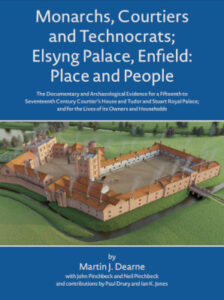 Hello Martin, and congratulations on your new book! Please could you start by introducing our readers to Enfield and its history?
Hello Martin, and congratulations on your new book! Please could you start by introducing our readers to Enfield and its history? 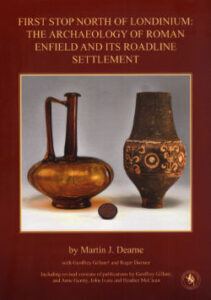
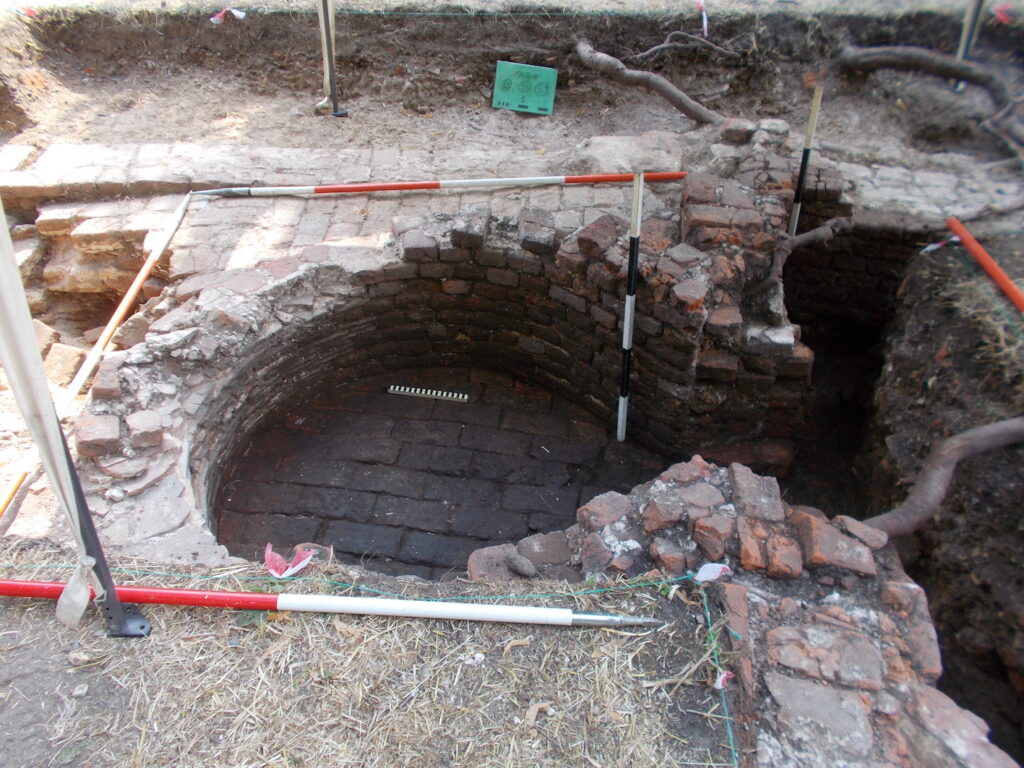
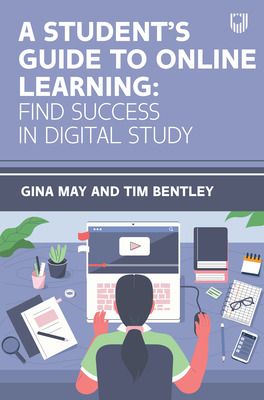
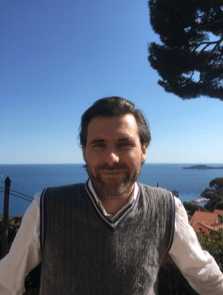 So, this year’s Classical Association conference has just drawn to a close, and what a conference, with papers ranging from Tolkien’s Unique Reception of Pythagorean ‘Dissonance’ in the Ainulindalë of the Silmarillion to Cyrus the Great, Caught Between Persia and Iran.
So, this year’s Classical Association conference has just drawn to a close, and what a conference, with papers ranging from Tolkien’s Unique Reception of Pythagorean ‘Dissonance’ in the Ainulindalë of the Silmarillion to Cyrus the Great, Caught Between Persia and Iran.